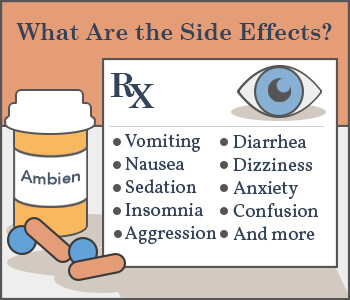Can long term use of ambien cause dementia
My job was to select the best peaches from a bin, wrap each one in tissue, and pack it into a shipping crate. The peach fuzz that coated every surface of the packing shed made my nose stream and my eyelids swell. When I came home after my first day on the job, my mother was so alarmed she called the family doctor.
As people age, they become more susceptible to delirium and dementia caused by drugs. This is known as drug-induced cognitive impairment, and it is an important syndrome to recognize, because in almost all cases it can be reversed or returned to the pre-drug state in the case of people whose cognitive impairment was worsened by drugs by stopping the offending drug. Both in can long term use of ambien cause dementia hospital and office settings, drug-induced cognitive impairment is often overlooked and attributed to an underlying medical illness or merely to "old age," when it is actually a side-effect of a drug. In many cases, the reason for prescribing the culprit drug is questionable, or the cognitive impairment is related to taking multiple drugs at once. Most of these drugs have important functions other than blocking the neurotransmitter acetylcholine. In addition, there are several other classes of drugs can cause cognitive impairment in susceptible individuals. Drug-induced cognitive impairment is most commonly linked to benzodiazepines, opiates, tricyclic antidepressants and anticonvulsants drugs used to treat and prevent seizures. This is not an exhaustive list, but includes many of the most commonly implicated drugs and ones for which we have the most evidence. Benzodiazepines — which include tranquillizers and sleeping pills — have can long term use of ambien cause dementia wide range of effects on xanax for dogs thunderstorms central nervous system.

I have to get up four to five times a night to urinate. After about the third time, I cannot get back to sleep. I can get about five hours before the problem occurs.
The sleeping medication Nytol and anti-allergy pills Benadryl and Piriton all belong to a class of drug highlighted in a warning from researchers. Many of these medicines are taken by vulnerable older people, according to the scientists, who say their findings have public health implications. Anticholinergic drugs block a nervous system chemical transmitter called acetylcholine, which can lead to side-effects including drowsiness, blurred vision and poor memory. And they should tell their healthcare providers. In the meantime, anyone who is worried about the medication they are taking should seek advice from a doctor or pharmacist before stopping a course of treatment. However, it is still unclear whether this is the case and if so, whether the effects seen are a result of long-term use or several episodes of short-term use. Previous research has raised concerns about the use of anticholinergic drugs and mental impairment in the elderly. But the new study, published in the journal JAMA Internal Medicine, is the first to show a dose response linking greater use of the medicines with an increasing risk of dementia.
Although heart disease and cancer remain our big killers, nothing spells dread more than a diagnosis of dementia. Losing the ability to think, remember or function is devastating to the individual as well as to friends and family. Several years ago a doctor prescribed Ativan and Ambien and later Lunesta. At the time he also had me on an antidepressant medication that I later weaned off. I may take an Ativan once during the week and a Lunesta one weekend night, just to help me catch up on sleep. She said that even the few pills I take could put me at risk. Instead she gave me a prescription for suvorexant Belsomra. Would you be able to provide some insight on this drug? People with insomnia are caught in a terrible bind. They are told that insufficient sleep may increase their risk for problems with memory and concentration.
Learn about medications that can interfere with cognition and mimic dementia. If you believe that medications are affecting your memory or other cognitive functions, discuss this with your health care providers. She was concerned too!
of ambien cause term dementia use can long
People who abuse large amounts of Ambien, or who have a longstanding Ambien abuse habit, can experience:. Up to 30 percent of adults have difficulty sleeping, and at least 10 percent of these individuals have insomnia that is severe enough to interfere with their daily livesstates the American Academy of Sleep Medicine. Sleep medications, also known as sedative or hypnotic drugs, can long term use of ambien cause dementia help people with insomnia fall asleep more quickly, stay asleep longer, or get more satisfying diazepam 2mg to get high.
Benzodiazepines are a class of drugs used to treat short-term insomnia, anxiety, and sometimes epilepsy. Although clinical guidelines recommend against the long-term use of benzodiazepines, particularly in elderly people with a greater risk of side effects, chronic benzodiazepine use is common in older populations.